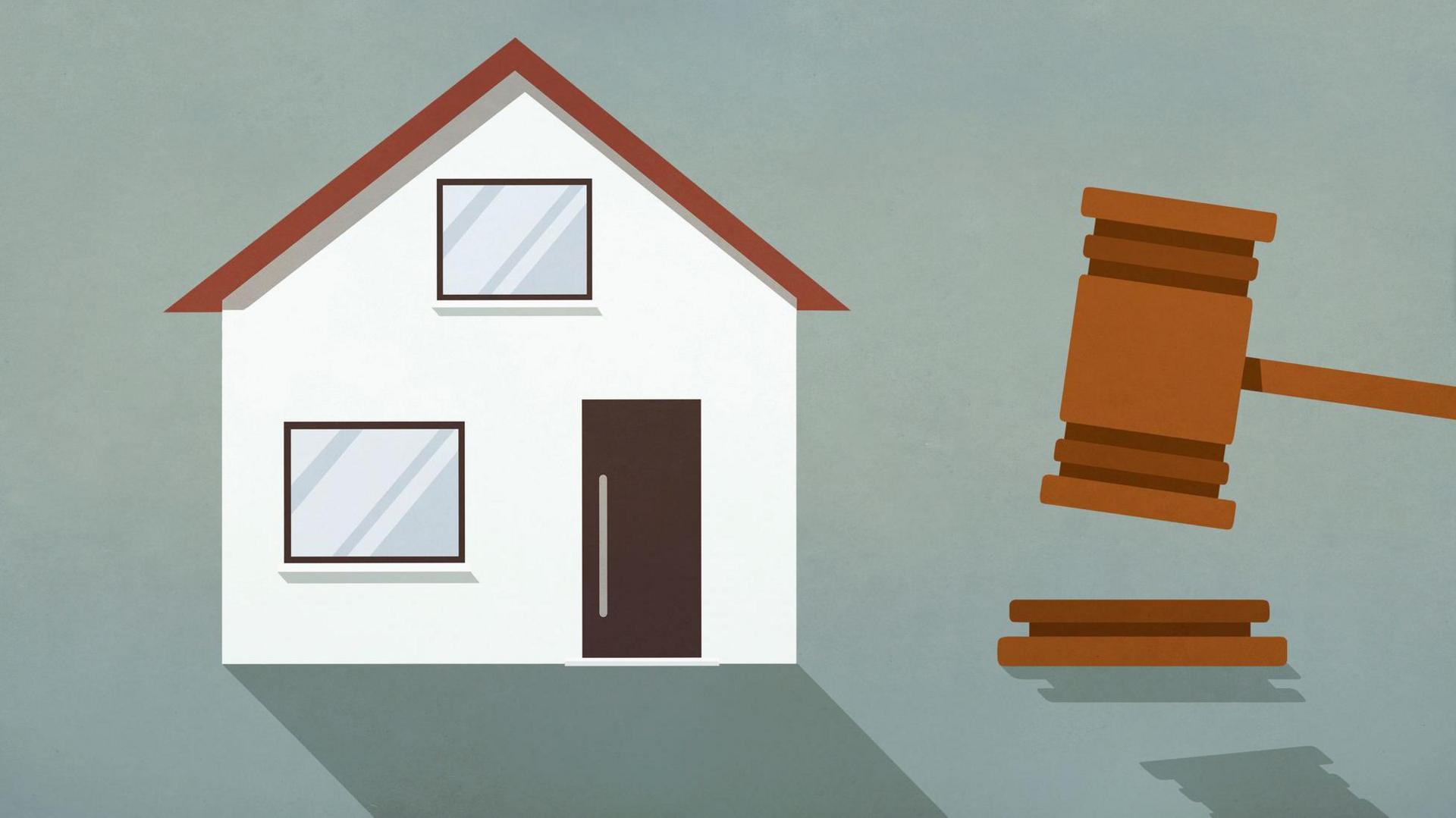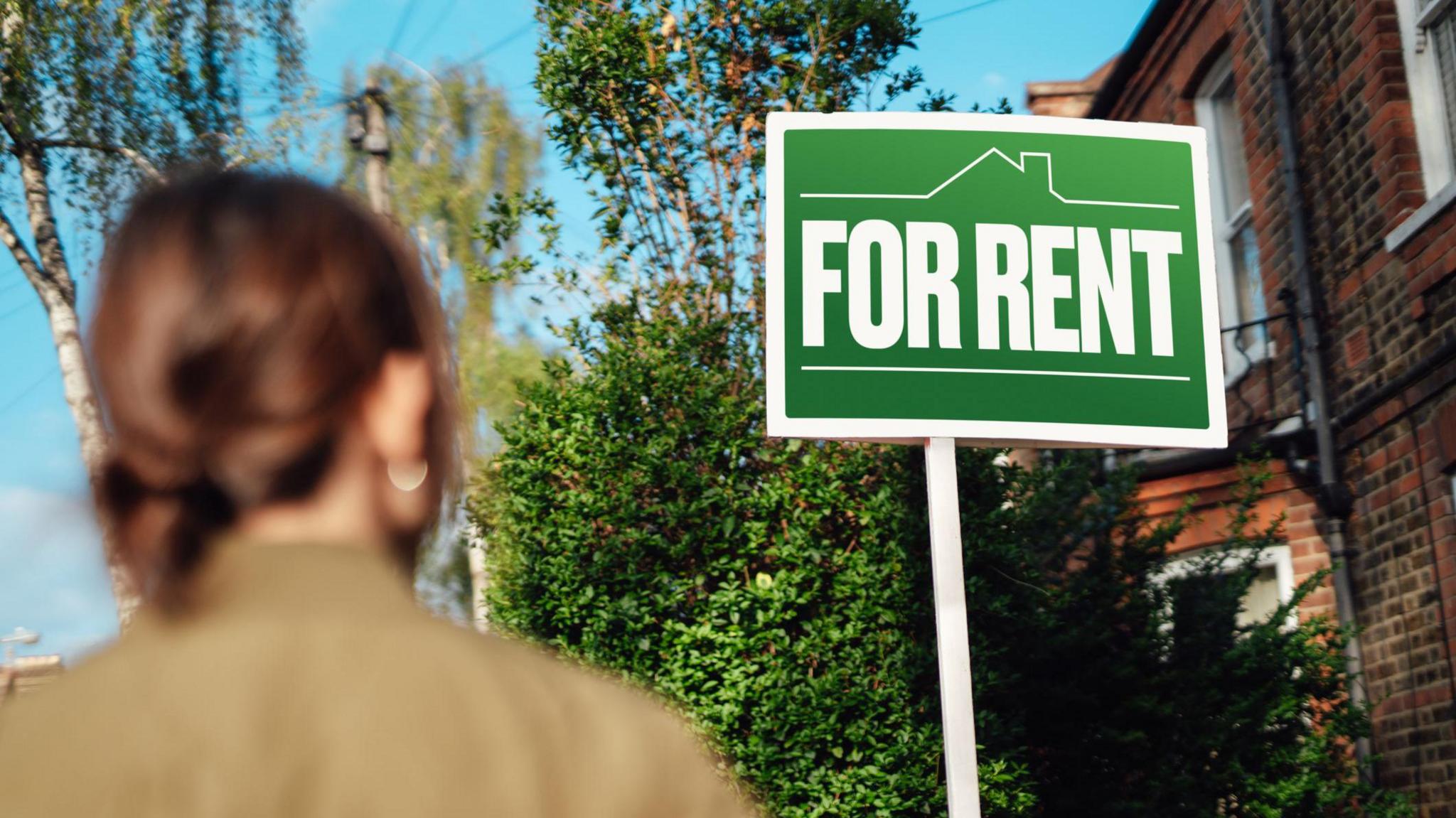How new renting laws affect families

- Published
A new law has been passed by the government, which hopes to do more to protect people who rent their homes.
It's called the Renters Rights' Act and it's the biggest change to renting laws in more than 30 years.
Some of the new rules will start in May 2026, and the government hopes it will give renters more stability and security, and avoid the risk of homelessness.
But some landlords are worried about the changes. The National Residential Landlords Association - who represent landlords - says the changes are coming into play too fast.
But what is renting? What's a landlord? And how could these changes affect me? Read on to find out more.
Record number of children affected by homelessness in the UK
- Published16 May 2024
The kids demanding better housing. Video, 00:00:56
- Published6 March 2018
What do Members of Parliament do?
- Published24 May 2024
What is renting?

Renting is when a person pays someone else to live in their property.
The person who owns the property is called a landlord, and the person who lives in the home is called a renter or a tenant.
The tenant usually pays the landlord monthly, and in return the landlord will keep the house or flat safe and suitable to live in.
Landlords often have more power than renters, as they can choose who lives in their property, how much it will cost and if they want them to leave.
This new law aims to give renters more rights and give more balance to the relationship.
1. Children and pets allowed!

Up until now, landlords didn't have to let pets or families with children live in their properties.
However, the new law means that renters can ask to live with a pet and the landlord has to consider the request.
It also makes it illegal for landlords to discriminate against people with children.
The government hopes this change will mean everyone is treated fairly when looking for a place to live.
2. People can't be asked to leave for no reason

One of the biggest changes is the ban on what's called "no-fault" evictions.
That's when a landlord asks a person or family to move out of their house or flat, without giving a reason.
The new rules means landlords can no longer do that.
However, renters could still be told to leave if the landlord wants to move back in or sell the property, if they haven't paid the rent or if there's anti-social behaviour.
3. Rents can only go up once a year

Landlords will now only be able to increase the amount of money the renter has to pay to live in the home once each year.
If they want to increase it, they will need to give the renter 2 months' notice and it must match the price of other properties that are the same size and standard in the area.
This is called the "market rate".
Do the new rules affect the whole of the UK?

No. These new rules only affect people who are living in England.
In Northern Ireland and Wales no-fault evictions are still allowed, but Scotland already banned them in 2017.
What have people said about the changes?

Steve Reed, who is in charge of Housing for the government, said their plan was about tackling landlords who don't behave properly.
"We're now on a countdown of just months to that law coming in - so good landlords can get ready and bad landlords should clean up their act," he said.
Many renters' groups have welcomed the changes. The Renters' Reform Coalition - which includes housing charities - says the changes being made to how landlords can force someone to leave their home is "a huge issue".
However, Ben Beadle, head of the National Residential Landlords Association, said the rules are coming in too quickly and landlords need longer to get prepared "for the biggest changes... for over 40 years."
James Cleverly, who represents the Conservative Party on housing issues, also said the rules were coming in too quickly.
He said he was worried that it could lead to landlords selling their houses instead of allowing people to rent them, which would mean fewer homes were available and prices could go up.
